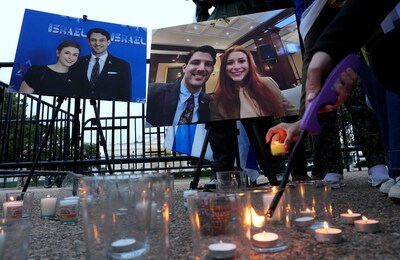On April 13, 2025, a shocking act of arson targeted Pennsylvania Governor Josh Shapiro"s residence while he and his family slept inside. The attack has illuminated a chilling reality: a growing wave of antisemitism in America, marked by violent acts justified through distorted political narratives.
Arson Attack Highlights Vulnerability
The arson wasn"t merely a random act of violence; it came as part of a troubling trend. Following the attack, two individuals were murdered in Washington D.C. outside the Capital Jewish Museum, and another group of elderly Jews advocating for humanitarian action was targeted in Colorado with firebombs. All these incidents, according to reports, are framed as acts of support for Palestinian rights, yet they expose a deeper crisis of hatred and dehumanization.
Political Rhetoric Fuels Violence
The assailant in the Shapiro case reportedly acted out of a perverse solidarity with Palestinians, raising troubling questions about the rhetoric fueling such violence. As noted by Rabbi Eric Yanoff, this twisted ideology not only threatens the lives of Jews but also undermines the broader struggle for social justice. The conflation of legitimate criticism of Israel with outright antisemitism leads to dangerous outcomes, making it essential to dissect these narratives critically.
Antisemitism and Economic Justice
Economic disparities often exacerbate social tensions. Antisemitism has historically thrived in economically distressed environments, and the current economic climate, characterized by rising inflation and wealth inequality, creates fertile ground for scapegoating minority communities. According to a survey by the American Jewish Committee, 22% of American Jews reported feeling less secure since the onset of the Israel-Hamas conflict. This insecurity is not just a sentiment; it has a tangible economic impact, forcing Jewish institutions to allocate hundreds of millions for security measures rather than community support.

Josh Shapiro: Suspect arrested after arson at Pennsylvania gov…
Security Measures Fail to Address Root Causes
The federal government’s allocation through the Nonprofit Security Grant Program aims to bolster safety for Jewish organizations. However, as Rabbi Yanoff pointed out, these measures are grossly underfunded and insufficient. Security alone cannot combat the deep-seated antisemitism that permeates society. A community-wide approach is necessary—one that actively rejects dehumanizing rhetoric and fosters solidarity across diverse groups.
Implications for Social Justice Movements
The implications of rising antisemitism extend far beyond the Jewish community. The reluctance to confront these issues risks fracturing alliances within broader social justice movements. Activists must grapple with the complexities of intersectionality, acknowledging that the fight against antisemitism is intertwined with the struggle for racial and economic justice. When we fail to protect one another, we weaken the entire fabric of our activism.
Call for Solidarity Against Hate
In the face of increasing violence and hatred, the call for solidarity has never been more urgent. Just as we stand against racism, xenophobia, and other forms of hate, we must similarly confront antisemitism. As the Jewish community invests heavily in security, the responsibility lies with all of us to reject hateful narratives that lead to violence. This is not just a Jewish issue; it’s a societal issue that demands collective action.
The events surrounding the arson at the Governor"s Mansion serve as a stark reminder of the urgent need for a unified front against all forms of hatred. It"s time for communities to come together, not just to ensure safety but to actively combat dehumanization in all its ugly forms.

Israel-Gaza War - The Washington Post

![[Video] Anti-ICE Protester Pepper Sprayed as CBP Agents Disperse Crowd in Minneapolis](/_next/image?url=%2Fapi%2Fimage%2Fthumbnails%2Fthumbnail-1768260677127-y71sb7-thumbnail.jpg&w=3840&q=75)

![[Video] Several injured as U-Haul truck drives through Iranian protestors in Los Angeles](/_next/image?url=%2Fapi%2Fimage%2Fthumbnails%2Fthumbnail-1768176682028-q95y6j-thumbnail.jpg&w=3840&q=75)
![[Video] Scuffle breaks out between Trump supporters and Anti-ICE protesters in Times Square](/_next/image?url=%2Fapi%2Fimage%2Fthumbnails%2Fthumbnail-1768165958203-hgcgb-thumbnail.jpg&w=3840&q=75)


![[Video] Gunfire between Iraqi security forces and Sadr militias in Baghdad](/_next/image?url=%2Fapi%2Fimage%2Fthumbnails%2Fthumbnail-1768343508874-4redb-thumbnail.jpg&w=3840&q=75)
